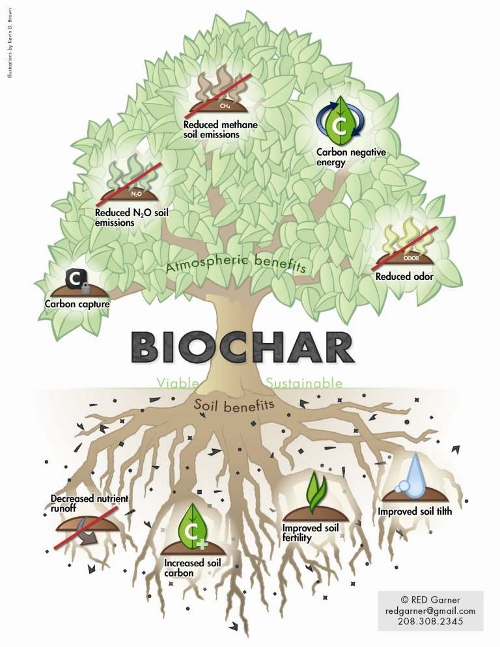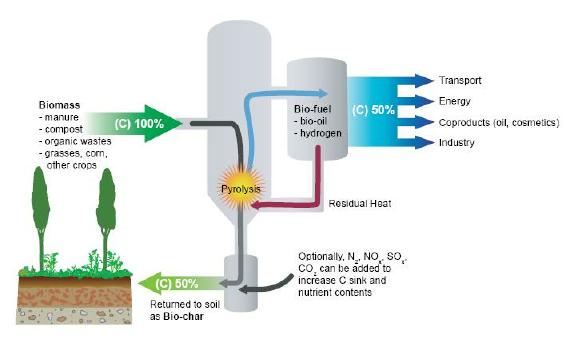Biochar
Biochar is a solid material obtained from the carbonization of biomass. Biochar may be added to soils with the intention to improve soil functions and to reduce emissions from biomass that would otherwise naturally degrade to greenhouse gases. The process creates a fine-grained, highly porous charcoal that helps soils retain nutrients and water. Biochar is a stable solid, rich in carbon and can endure in soil for thousands of years. When the biochar is buried in the ground as a soil enhancer, the system can become “carbon negative.” The soil fertility benefits of biochar are a very high affinity of nutrients to biochar and other compounds (adsorption) and the extremely high persistence of biochar in the ground (stability). In addition to creating a soil enhancer, sustainable biochar practices can produce oil and gas byproducts that can be captured and used as fuel, providing clean, renewable energy.
Biochar feedstock is usually wood 3” or more in diameter. The process of preparing feedstock does not include chipping (saving energy), and the feedstock is therefore not in direct competition with aerobic or anaerobic composting.
Traditionally biochar has been made by covering open stacks of burning wood to smolder the fire. The waste gases went up as smoke. Modern systems pyrolize the woody waste in a closed chamber. Gases and oils are collected for post-processing into biogas. Feedstocks for this system would come from large limb residential yard waste, commercial wood waste, and clean construction scrap lumber. Additionally the dry effluent from an anaerobic digester can be turned into biochar.



